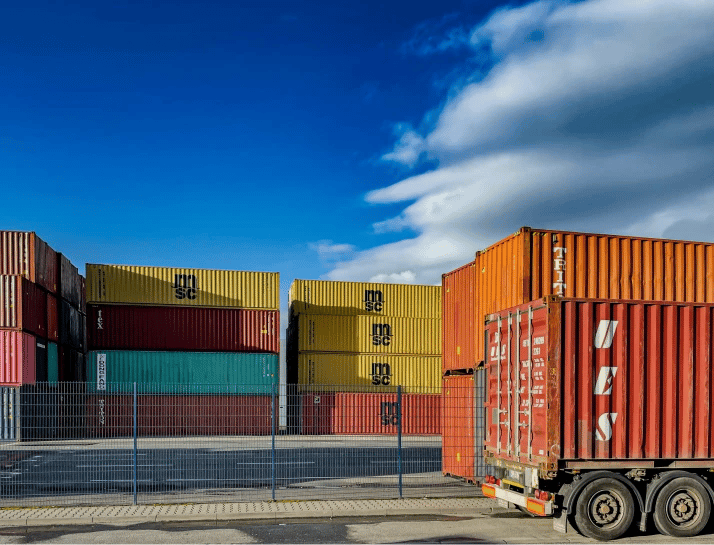Chapter 4
Sustainability and the Future of Trade
The Growing Role of Climate and Sustainability on Global Trade
Sustainability is increasingly shaping global trade as the world addresses climate change. Carbon pricing and emissions trading systems are prompting companies to adopt greener practices and reconfigure supply chains and the environmental technology market is expected to reach $690.3 billion by 2026. Chapter 4 examines the evolving landscape of sustainable trade, focusing on opportunities and challenges in building a resilient, environmentally responsible global trade system.
Carbon Markets
Introducing carbon pricing and emissions trading systems will compel companies to pay higher prices for imports with a high carbon footprint. Consequently, trade patterns will undergo a transformation as companies actively seek out environmentally friendly producers.
Renewable Energy and Environmental Technologies
In their efforts to achieve net-zero targets, companies and countries will prioritise reducing their reliance on fossil fuels and increasing imports of renewable energy and associated technologies. Certain countries will emerge as prominent global suppliers in this domain.
Changing Government Priorities
Traditionally, foreign policy has involved a balancing act between economic gains and national security concerns. However, the growing concern over climate change is becoming an integral part of this equation. In the future, governments will emphasise assessing their energy needs resilience in light of climate considerations.
What are the main types of carbon pricing systems implemented by many governments, and how do they work?
Key Observations
Impact of Carbon Pricing on Trade
Carbon pricing and emissions trading systems are reshaping global trade by compelling companies to seek out greener producers. For example, the EU’s Carbon Border Adjustment Mechanism (CBAM) will impose tariffs on carbon-intensive imports.
Rise in Renewable Energy Trade
The transition to renewable energy is driving new trade opportunities. Countries such as China, which produces 70% of the world's graphite used in solar panels and EV batteries, are becoming dominant suppliers. This shift is expected to reroute trade away from fossil fuels towards renewable energy technologies.
Environmental Technology Trade
International trade is crucial for spreading green technologies. Many developing countries, among the fastest-growing importers and exporters of ESTs, rely on these imports to meet sustainability goals. This trade helps establish global value chains and ensures broader access to environmental technologies.
Greening Supply Chains
More than 90% of an enterprise’s greenhouse gas emissions and 50-70% of its operating costs are typically attributable to supply chains. Consequently, businesses are restructuring their supply chains to prioritise environmentally sustainable components.
Climate Policy Impact on Trade Dynamics
Renewable Energy Surge
With COP28 endorsing a shift from fossil fuels, trade is set to become a key distributor of renewable technologies.
Greening of Supply Chains
As companies commit to achieving net-zero goals, they will intensify their scrutiny of supply chains to secure environmentally sustainable components.
Increasing Regionalisation
In the long run, the impacts of climate change may accelerate the ongoing trend of trade regionalisation. This shift will be partly influenced by consumer preferences, as heightened awareness of climate change could lead to an increased preference for locally sourced products.
Sustainable Technologies Trade
Trade plays a crucial role in driving the transition towards an inclusive green economy. Trade facilitates innovation by promoting competition, specialisation, and the spread of knowledge.
World leaders increasingly recognise the interconnection between sustainability, trade, and innovation. Major global powers such as China, the United States, and the EU are allocating significant resources to attract investments in their green industries.
.webp?width=714&height=545&name=Frame%2071%20(5).webp)
Leading Exporters and Economic Impact
China, Germany, and the United States dominate EST exports, with Germany's EST exports accounting for 2.4% of its GDP in 2022. Trinidad and Tobago, traditionally an oil and gas exporter, led in EST exports relative to GDP at 5.9%, showcasing its renewable energy diversification.
Fastest-Growing Importers and Exporters
Timor-Leste and the Maldives were the fastest-growing EST exporters in 2022, thanks to regional trade agreements. Lebanon and Timor-Leste were the fastest-growing importers, with Asia and Africa leading among the top ten fastest-growing importers.

RECOMMENDATIONS FOR BUSINESS AND GOVERNMENT
Business Recommendations
- Prioritise sustainability at the board level. Businesses should prioritise sustainability and integrate ESG into strategic decision-making to stay competitive and aligned with overall objectives.
- Review and optimise supply chains. Sustainable sourcing and supply chain management can reduce environmental impact and ensure long-term profitability by mitigating risks.
- Mitigate climate-related supply chain risks. Businesses should plan for climate-related supply chain disruptions, assess risks, and implement mitigation strategies to ensure business continuity.
- Engage in voluntary carbon markets. Engaging in voluntary carbon markets allows businesses to manage emissions, demonstrate environmental stewardship, and prepare for future carbon regulations.
- Invest in regulatory expertise and data collection. Businesses should invest in expertise to stay informed on sustainability regulations and enhance data collection for informed decision-making.
Government Recommendations
- Invest in green infrastructure and technology. Governments should prioritise investment in green infrastructure and technology to support the transition to net-zero and drive sustainable economic growth.
- Harmonise regional carbon pricing mechanisms. Governments should prioritise compatibility and harmonisation between different carbon pricing and trading systems to avoid trade complexities and costs.
- Facilitate technology transfer and dissemination. Governments should facilitate the global dissemination of green technologies to accelerate the transition to a low-carbon economy and address climate change on a global scale.
- Enhance climate resilience and regional cooperation. Governments should prioritise efforts to enhance climate resilience and regional cooperation to mitigate the impacts of extreme weather events and promote sustainable development.